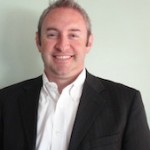One of the things you hear the most from employers and employees is the need for experience. When you get your first job, you have experience from your internships and college public relations/marketing classes. As you add years onto your career, you gain the experience from working with clients, writing media advisories and releases and researching potential clients.
But, the office isn’t the only place you gain experience. As a matter of fact, it’s absolutely paramount to get out of the office to really broaden your horizons. Your experience grows when your mind can take in knowledge outside of the “four walls.”
The office is for work, a large percentage of the time. While I learned many things in the office, I grew as a professional outside of it. As a solo public relations pro, my knowledge has grown exponentially not being in an office setting.
Here are some things you can do to expand your professional experience.
- Twitter chats: Twitter chats may seem very obvious these days. You can learn a ton from Twitter chats and network at the same time. Many of the chats have seasoned pros run and/or take part. Chats I recommend are #brandchat #solopr #NPRSSA (obviously) and #PRStudChat. You will always learn something important from these chats. Make it a point to try and participate when you can. #BrandChat and #solopr take place weekly; #NPRSSA and #PRStudChat are monthly.
- Conferences: The great thing about conferences is that most companies will pay for you to go because it is part of your professional development. Never miss out on an opportunity to go to one, no matter the size. Whether it is a local PRSA conference or something like Social Fresh, you will grow as a pro by listening to what these experts have to say. Again, it’s the perfect place to network.
- Podcasts: I love podcasts. Even though I don’t ride the train any longer, I still make the time to download and listen. My business is better for it and my experience is as well. “The Human Business Way” by Chris Brogan is outstanding, as is “The Social Media Marketing Podcast” with Michael Stelzner. You can listen to them on the treadmill, in the car or on a beach (learning and relaxing!).
- Webinars: Some of these are free; some require you to pay. The good thing about webinars is you can see if the topic may appeal to you before signing up. Look at what PRSA has to offer or check Twitter and Facebook to see what companies like Vocus, Marketwire and Ragan may be offering monthly or weekly.
- Blogs: While last on this list, it is certainly not least. Blogs are an important tool for information and learning. It’s a good bet that a PR/social media/marketing pro has a blog. Good folks to check out are Deirdre Breakenridge, PR Breakfast Club, Shonali Burke, and SpinSucks. You’ll get a mix of traditional knowledge as well as build up your new tool arsenal.
Gaining knowledge is up to you. Don’t rest on what is in front of you; look beyond the now, and see the future. YOUR future.
 Jason Mollica (@JasMollica) is the president of JRMComm, a public relations and social media marketing consultancy. He combines knowledge of the broadcast news industry, traditional public relations expertise and today’s new and innovative social media tools. Mollica operates his own blog and has guest blogged on several others, including the respected Ad Age-ranked PR Breakfast Club, Ragan.com and PRSSA’s Progressions.
Jason Mollica (@JasMollica) is the president of JRMComm, a public relations and social media marketing consultancy. He combines knowledge of the broadcast news industry, traditional public relations expertise and today’s new and innovative social media tools. Mollica operates his own blog and has guest blogged on several others, including the respected Ad Age-ranked PR Breakfast Club, Ragan.com and PRSSA’s Progressions.



